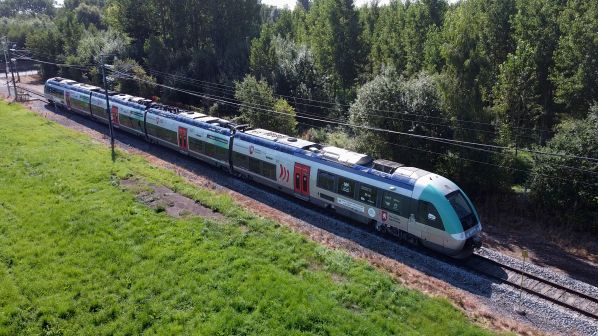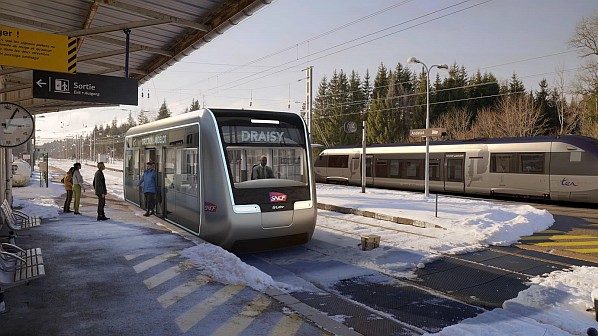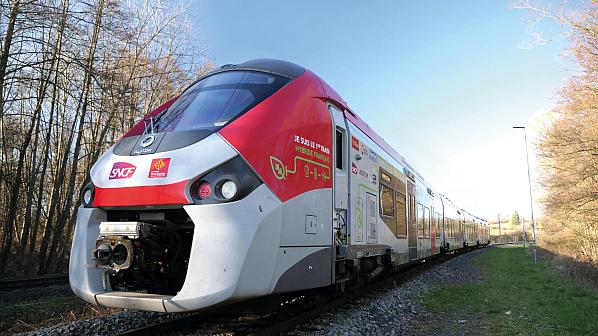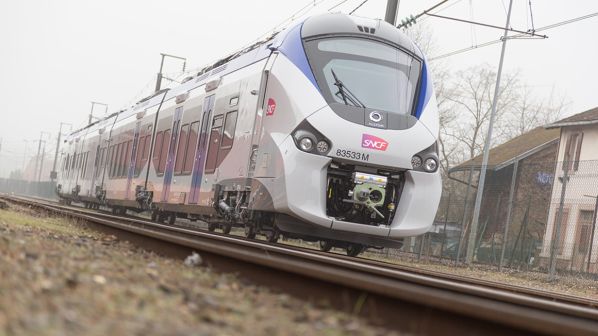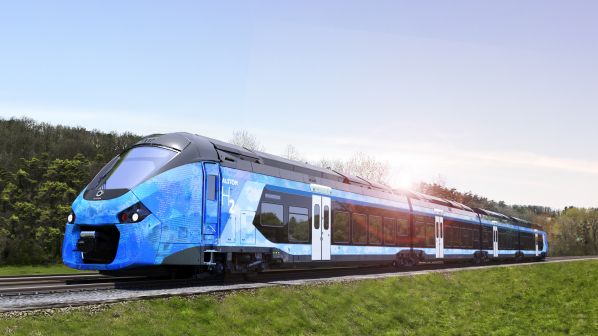FRENCH National Railways’ (SNCF) passenger business SNCF Voyageurs and Alstom have presented the first battery-powered regional train developed in partnership with the Auvergne-Rhône-Alpes, Hauts-de-France, Nouvelle-Aquitaine, Occitanie Pyrénées-Méditerranée and Sud (Provence-Alpes-Côte d’Azur) regions, which has now begun dynamic testing.
The regions have been working with SNCF Voyageurs and Alstom since 2021 on a project to develop battery-powered trains to help reduce CO2 emissions on non-electrified lines.
Five bi-mode AGC trains will be modified by replacing their diesel engines with batteries, in order to become 100% electric. The first battery-powered train supplied to Nouvelle-Aquitaine left the Alstom site at Crespin in northern France during the summer and has just begun dynamic testing.
Some of the trains to be retrofitted with batteries have been in service for almost 20 years, and Alstom says the new, cleaner and more environmentally-friendly traction system will allow them to operate in commercial service on electrified and non-electrified lines for a further 20 years.
Static and dynamic testing at up to 60km/h took place during the summer at Crespin, in order to check the train’s operation and test its battery-powered traction mode. The first trials show that the battery charging and discharging system is working properly.
Tests are now continuing at the CEF railway testing centre near Bar-le-Duc in eastern France, with validation and certification testing conducted at up to 160km/h. The train’s new traction mode will be tested, in order to validate route simulation models under operating conditions identical to those in commercial service.
The final phase of tests on the French national network is scheduled for December 2023 and January 2024, which should prove that the train is compatible with the existing French infrastructure and will enable SNCF Voyageurs to finalise its application to national rail safety authority EPSF, with a view to obtaining the necessary authorisation for the modified AGC multiple-unit to enter commercial service.
Alstom says it is aiming for the trains to be authorised to enter commercial service from December 2024 in the partner regions during an initial experimental period, which will then enable the technology to be rolled out on a larger scale.
The overall budget for the project, including the pre-production run of five trains, is €40.2m, with each region contributing €5.7m, Alstom €5.5m and SNCF €6m.
